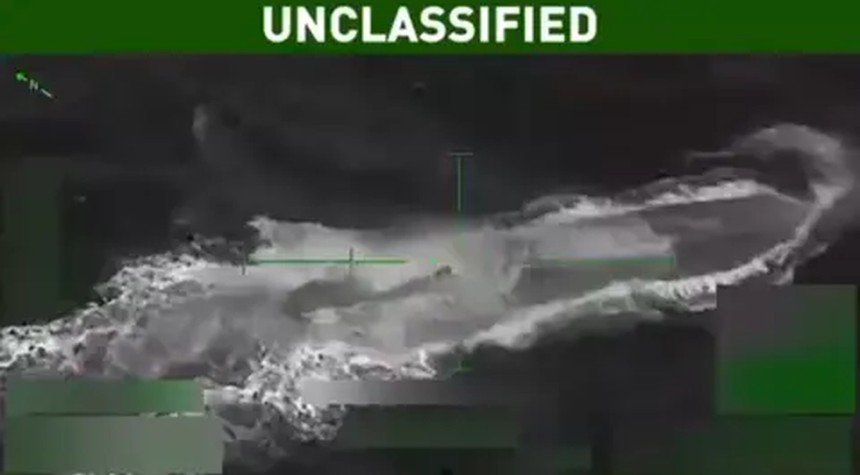The Biden administration’s aggressive counter-narcotics strategy in the Caribbean has hit a diplomatic snag as Ecuador released one of two survivors from a recent US military strike on an alleged drug-smuggling submarine, highlighting the complex challenges in combating international drug trafficking.
Despite clear evidence of narcotic trafficking operations – including video footage of a custom-built semi-submersible vessel designed specifically for drug transport – Ecuador’s Attorney General’s office claimed they had no grounds to detain their national, Andrés Fernando Tufiño, citing “no report of a crime” within their jurisdiction.
This development underscores a critical weakness in international drug enforcement: the inability to prosecute clear perpetrators due to bureaucratic and jurisdictional limitations. The semi-submersible vessel, a sophisticated piece of equipment costing millions to construct, serves no legitimate commercial or civilian purpose.
President Trump, addressing reporters at the White House, emphasized this point: “This was not an innocent group of people. I don’t know too many people who have submarines, and that was an attack on a drug-carrying, loaded submarine.” The president specifically noted the vessel was suspected of carrying fentanyl and other illegal narcotics.
The US military operation, which has resulted in at least seven strikes since September and 32 confirmed casualties, represents a significant escalation in America’s war on drugs. The deployment includes 10,000 US troops, multiple military aircraft, and naval vessels – a substantial commitment of military resources to combat the drug trade.
However, left-wing critics have questioned the legality of these strikes under international law, while drug trafficking experts point out that most fentanyl enters the US through Mexico rather than the Caribbean. These objections ignore the broader strategic importance of disrupting all drug trafficking routes and the clear national security threat posed by sophisticated narco-trafficking operations.
The Colombian survivor, Jeison Obando Pérez, age 34, has been returned to his home country for prosecution. The contrasting responses from Ecuador and Colombia highlight the varying levels of cooperation in regional counter-narcotics efforts.
The facts remain clear: custom-built drug submarines represent a sophisticated threat to American security, requiring an equally sophisticated military response. While diplomatic complications may arise, the necessity of aggressive action against drug traffickers cannot be questioned when faced with such blatant examples of organized criminal enterprise.
The successful US military operation, resulting in the destruction of the vessel and the capture of two survivors, demonstrates the effectiveness of direct action against drug trafficking infrastructure. However, Ecuador’s release of their national exposes the ongoing challenges in maintaining a unified international front against drug cartels and their increasingly advanced trafficking methods.
Related: Cincinnati Mayoral Candidate’s Church Targeted in Apparent Political Attack


